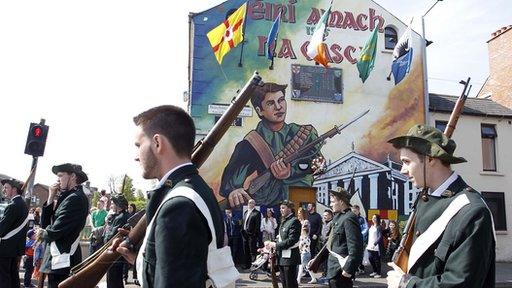Who owns legacy of 1916 Easter Rising?
- Published
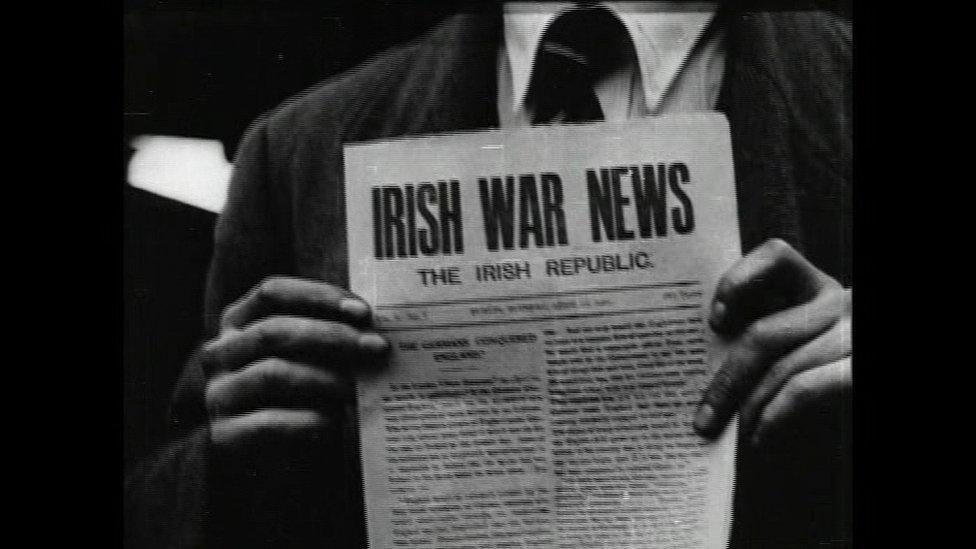
Next year marks the centenary of the 1916 Easter Rising.
Next year will be an important year for the Republic of Ireland and Irish nationalists everywhere.
It is the centenary of the 1916 Easter Rising, the seminal event that led to Irish independence and in some ways to the creation of Northern Ireland.
But who owns the legacy of 1916, especially in an election year?
The 1916 Pathé news footage clearly shows the destruction to the centre of Dublin arising from the Easter rebellion.
The bombed-out General Post Office (GPO) from where the Republic of Ireland was proclaimed has no roof, it is windowless and its front is scarred by the firing of artillery.
The buildings near it either have collapsed or are in a poor state of repair.
On 27 March, Easter Sunday, people will again gather outside the GPO to commemorate the events that paved the way towards the foundation of a new state.
Last August, the Irish state began its centenary commemorations by marking the funeral of the Fenian leader Jeremiah O'Donovan Rossa.
Padraig Pearse, one of the rebellion's leaders, gave the graveside oration, where he famously said that "Ireland unfree shall never be at peace".
The Irish army, officially known as Oglaigh na hEireann, played a key role in that commemoration and will do so again over the coming months.
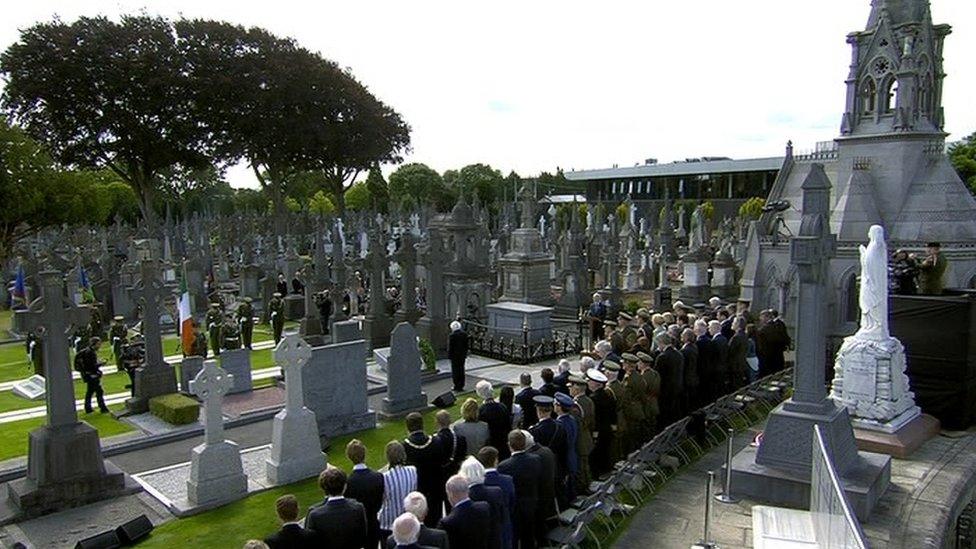
Last August, the Irish state began its centenary commemorations by marking the funeral of the Fenian leader, Jeremiah O'Donovan Rossa.
Irish politicians want to celebrate the foundation of the state, but without giving succour to dissident republicans and the violent republican tradition.
The 1916 rebels had no democratic mandate, but it could be argued that nobody had, because there was no universal suffrage not every adult had a vote.
Regina Doherty, a member of the Irish parliament with Fine Gael, the main government party, said 2016 belongs to everyone on the island and provided a chance for stock-taking.
"For me it's not about Sinn Féin or Fianna Fáil or Fine Gael," she said.
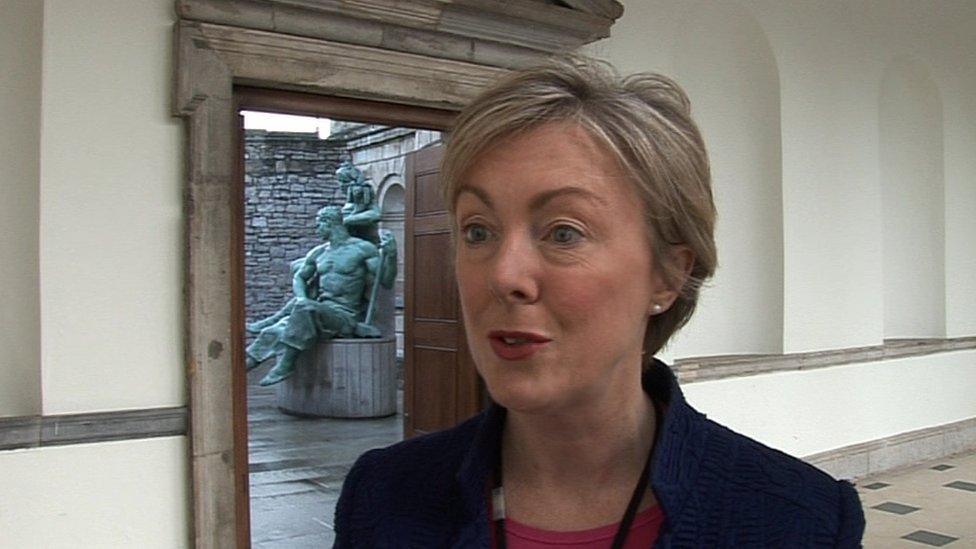
Fine Gael TD Regina Doherty said 2016 belongs to everyone on the island and provides a chance for stock-taking.
"It's about the inclusivity of the government programme and is a chance for us all to reflect on what has been achieved over the last 100 years.
"But more importantly it's also about our ambitions for the next 100 years.
"And that's the responsibility of everyone on this island, north and south."
Sinn Féin, while taking part in state commemorations, has also organised its own, including one last August for O'Donovan Rossa, where party activists re-enacted the funeral dressed in costumes of the time.
Simon Reeves, presenter of the BBC programme Ireland with Simon Reeves, noted that the centenary was the extraordinary story of the birth of a nation.
"Irish nationalism has in many ways gone into the background in the Republic," he said.
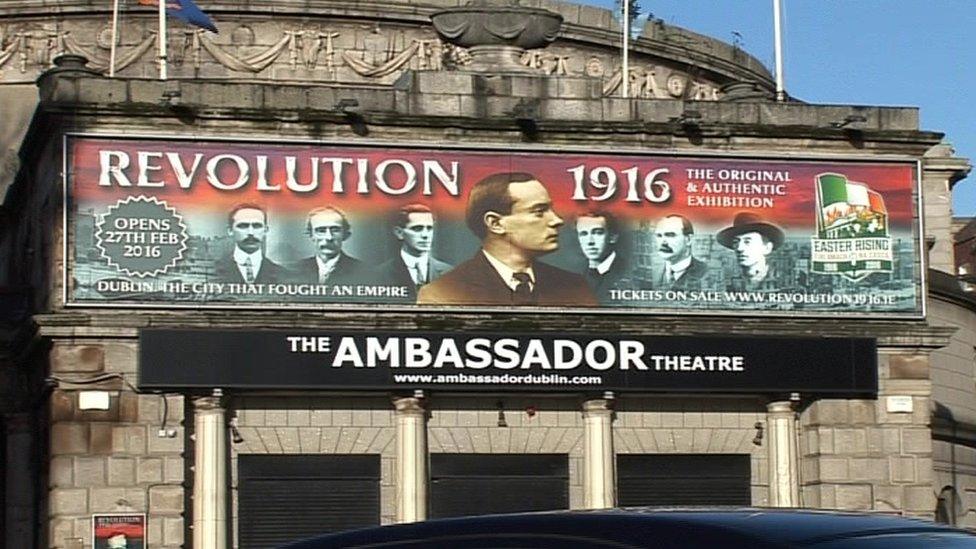
There will be an exhibition of artefacts from the Rising at the Ambassador at the top of O'Connell Street in Dublin.
"It's not front and centre in people's minds - they've got other concerns and this is part of a series of events Sinn Féin is using to try to awaken that sense of Irish national identity, of one island."
Sinn Féin is also planning a major event at the GPO on the calendar date of the Rising at the end of April.
There will be marches and vigils at important sites of the Rising and for at least six months from February there will be an exhibition of artefacts from the Rising at the Ambassador venue at the top of O'Connell street.
Sinn Féin parliamentarian Aengus O'Snodaigh said the party is not trying to claim ownership of the centenary.
"Sinn Féin has been organising commemorations since 1917 throughout the country," he said.
"We'll be doing in 2016 what we've always done and adding to it because of the significance of the 100 years.
"We're not trying to compete. Indeed, we're trying to make sure that our events aren't directly competing with the state events.
"We've timed them at different times."
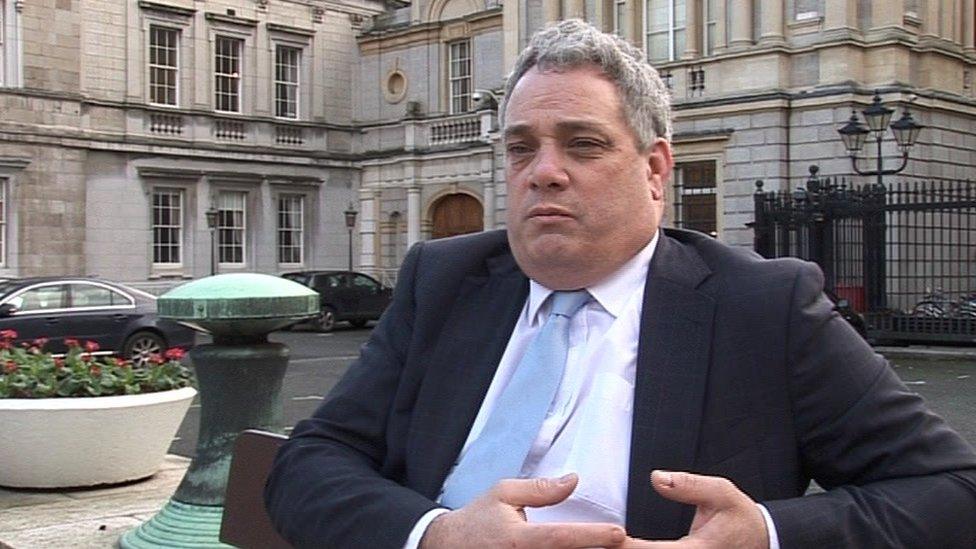
Sinn Féin TD Aengus O'Snodaigh said the party is not trying to claim ownership of the centenary.
The details of the state's Easter Sunday plans have yet to be announced, but they are expected to include a military march past the GPO where senior state figures and other VIPs will be gathered on a podium.
To date the centenary has not proved divisive or controversial, possibly because the general election is due to happen before it and so no one party can seek electoral advantage from the events of 100 years ago.
But it will be interesting to see if that changes over the coming weeks and months.
- Published15 October 2015
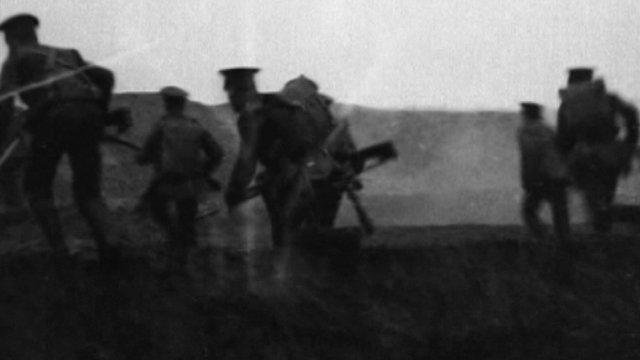
- Published28 July 2015
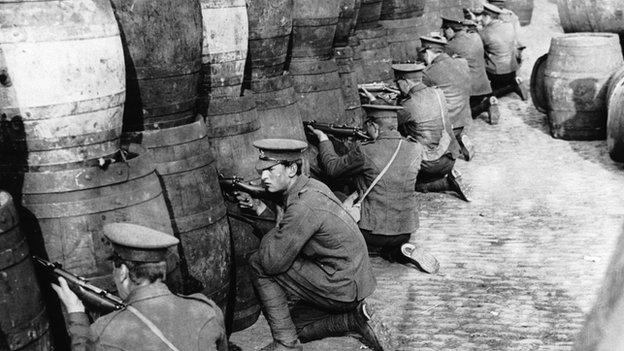
- Published20 August 2015
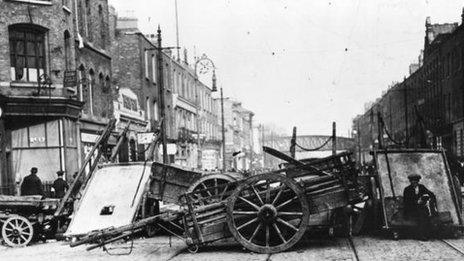
- Published20 April 2014
